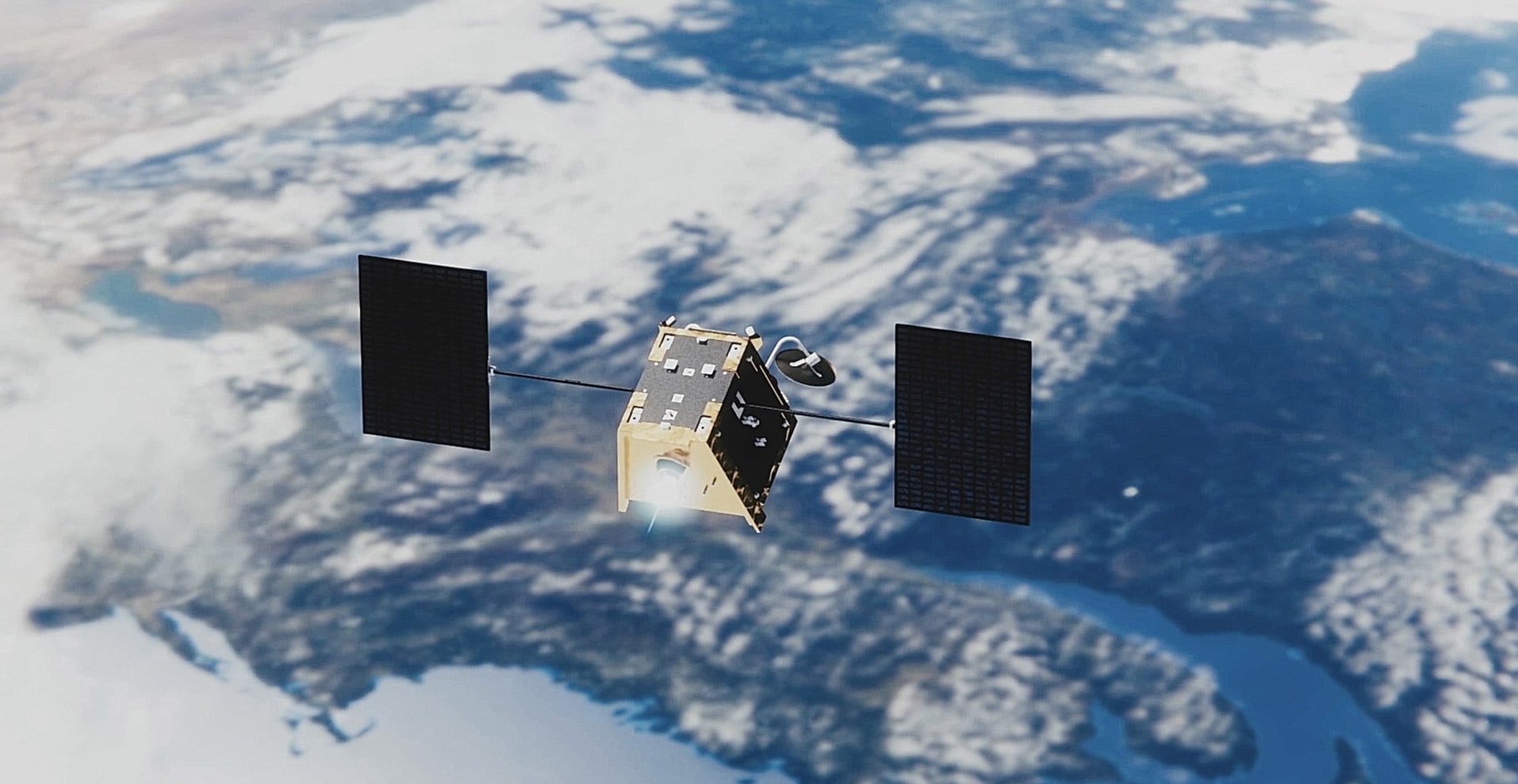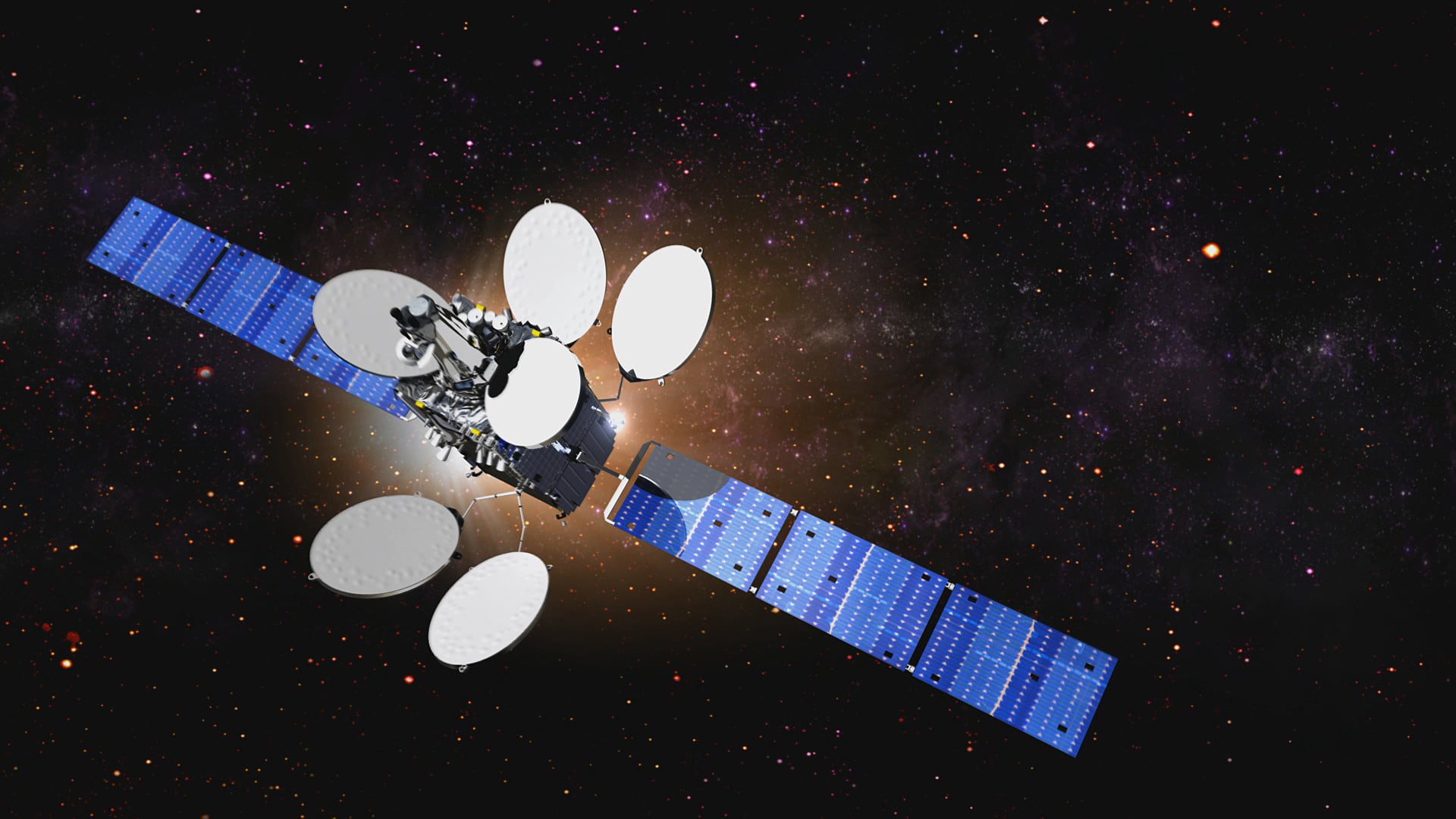Satellite communications provider Intelsat declared bankruptcy May 13, although its subsidiary which provides services to the Department of Defense is not part of the Chapter 11 proceedings.
CEO Stephen Spengler spun the action as a positive move, claiming it gave the company more financial flexibility for the Federal Communication Commission’s clearing of C-Band spectrum to make way for 5G uses. Major satellite communications companies, including Intelsat, saw their stocks take a massive hit last fall when FCC Chairman Ajit Pai announced plans for a public auctioning of C-Band spectrum, which C-Band holders like Intelsat had hoped to sell off directly.
RELATED

The company says it will need to spend more than $1 billion to meet the FCC’s deadlines for clearing out C-Band spectrum, which it needs to do in order to be eligible for $4.87 billion in accelerated relocation payments. Wiping the company’s significant legacy debt off the books will help it accomplish those actions, said Spengler.
“We intend to move forward with the accelerated clearing of C-band spectrum in the United States and to achieve a comprehensive solution that would result in a stronger balance sheet,” said Spengler in a statement. “This will position us to invest and pursue our strategic growth objectives, build on our strengths, and serve the mission-critical needs of our customers with additional resources and wind in our sails.”
Subject to court approval, the company said in a statement it had already secured $1 billion in new financing in debtor-in-position funds, giving it the liquidity to continue current operations and finance C-Band clearing costs spurred by the Federal Communications Commission. The company claims that day-to-day operations will not be impacted by the restructuring process—it will continue to launch new satellites and invest in its network with no changes planned.
The Chapter 11 petitions for Intelsat and some of its subsidiaries were filed with the U.S. Bankruptcy Court for the Eastern District of Virginia, Richmond Division.
However, Intelsat General, which provides satellite communications to the U.S. military and allied military customers, is not part of the bankruptcy proceedings.
“The immediate concern (for DoD) is continuity of operations and it sounds like that is not going to be a big issue,” said Todd Harrison, director of the Aerospace Security Project at CSIS. “The longer term concern for DoD is how does Intelsat eventually emerge from bankruptcy, and is there any kind of transfer in ownership or an increase in ownership stake that would be concerning from a national security perspective.”
Specifically, investment from Chinese companies could raise alarms for the military and the Committee on Foreign Investment in the United States.
“I think that’s something that DoD will be watching, that Treasury will be watching,” he said. “It will be a positive side from DoD’s perspective if wherever the capital is coming from is from a U.S. source.”
When asked about potential Chinese investment in a bankrupt Intelsat May 14, U.S. Air Force Assistant Secretary for Acquisition, Technology and Logistics Will Roper acknowledged he had concerns.
“It’s a topic that’s harder for me to talk about, but we are mindful of adversarial tactics in this period. Every crisis is an opportunity, and with companies coming under duress it is an opportunity for predatorial tactics targeting IP that countries would not have access to otherwise," he told reporters.
Furthermore, Roper noted that the decision to financially support a company like Intelsat to prevent foreign investment requires a different calculus than a traditional stimulus.
“The way to engage if we risk losing IP to a nation for whom it’s not in our interest to have it, it’s a very different strategy (than whether we) should engage to prop up a company through stimulus," he said. "When the former appears to happen, then we need to pivot into a different gear than we would be in the latter. We simply cannot do stimulus for every company that is in duress right now.”
Intelsat isn’t the only major satellite company to declare bankruptcy. OneWeb—who have been building a proliferated low earth orbit constellation to provide broadband—declared bankruptcy in March. DoD had been exploring utilizing OneWeb for communications in the Arctic among other things, and Lt. Gen. David Thompson, vice commander of Headquarters Space Force, noted earlier this week that the department’s new Space Acquisition Council was looking into helping OneWeb and other financially vulnerable space companies impacted by COVID-19.
Intelsat noted in a statement that several of its end markets had been impacted by COVID-19.
Roper said he was concerned with how COVID-19 was disproportionately affecting space and aviation companies, which rely more heavily on commercial revenue than other parts of the defense industrial base.
“That’s why we’ve taken such aggressive means to accelerate contract awards," said Roper. “We’re worried about space, as well, especially microelectronics. All of the Space Acquisition Council shares that concern. And as we see the Chapter 11s being filed—we’re tracking them—but our concern as an acquisition enterprise has got to be industrial base health and not picking winners or losers with specific companies. It’s ensuring that we are engaging to have a healthy industrial base on the other side."
Roper added that he had approved the acceleration of a major satellite award that should be announced this week as part of the department’s efforts to increase the flow of funding to defense companies during COVID-19.
Nathan Strout covers space, unmanned and intelligence systems for C4ISRNET.
Valerie Insinna is Defense News' air warfare reporter. She previously worked the Navy/congressional beats for Defense Daily, which followed almost three years as a staff writer for National Defense Magazine. Prior to that, she worked as an editorial assistant for the Tokyo Shimbun’s Washington bureau.






